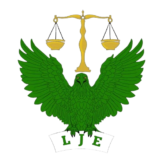Lagos, August 12, 2025 – A disturbing incident aboard an Ibom Air flight has escalated into a national debate about selective justice in Nigeria. Comfort Emmanson, a 26-year-old female passenger, was arrested after an unruly outburst during a Uyo–Lagos flight, leading to her arraignment and remand at Kirikiri Correctional Centre. The episode has triggered widespread outcry over perceived double standards in the enforcement of justice.
Incident on Board and Legal Fallout
According to Ibom Air, the altercation began before departure when Emmanson refused to switch off her mobile phone, a standard safety requirement. Despite a fellow passenger complying on her behalf, the situation escalated. Upon arrival in Lagos, she allegedly confronted and assaulted the purser—stepping on her, tearing off her wig, throwing her glasses to the floor, and striking her with her footwear. She reportedly attempted to wield a fire extinguisher as a weapon before being restrained by security and handed over to police.
Ibom Air emphasized its “zero-tolerance policy” and removed Emmanson from its services, while the Airline Operators of Nigeria (AON) imposed a lifetime industry-wide no-fly ban. She was charged with assault and remanded in custody
Voices of Concern: Accusations of Double Standards
Critics, including Labour Party spokesperson Ken Asogwa, condemned the incident as a symptom of “selective justice,” drawing comparisons with Fuji musician KWAM 1, who disrupted a ValueJet flight but has not faced legal consequences. Asogwa warned that such unequal application of the law threatens the rule of law and national unity.
Human rights activist Aisha Yesufu condemned the visible humiliation of Emmanson, who was allegedly dragged in a manner that exposed her body. Yesufu stressed that justice must not be determined by social standing, pointing to recent incidents involving high-profile individuals like KWAM 1 and former Governor Adams Oshiomhole—both of whom escaped similar punishment.
Likewise, legal heavyweight Dr Monday Ubani (SAN) criticized AON’s lifetime ban as violative of constitutional rights, including due process and freedom of movement, given that it was imposed without a fair hearing or judicial order.
Regulatory Perspectives
NCAA’s Director of Public Affairs, Mike Achimugu, clarified that the airline acted independently in prosecuting the case and issuing the ban, and that the situation was distinct from KWAM 1’s case, where evidence was lacking. He stressed, however, that aviation safety demands respect for crew instructions, and that passengers must comply.
The Takeaway: Justice Must Be Equal
- Public safety versus individual dignity: While airlines have a legal and moral duty to protect crew and passengers, this must not override basic human rights.
- Due process matters: Industry sanctions—especially those that impinge on freedom should not replace the courts or neglect legal safeguards.
- Fairness builds trust: Public confidence hinges on equal treatment before the law regardless of status or influence.
As the dust settles, the stakes are high: this incident has become more than a criminal case it’s now a national litmus test on equality, safety, and justice in Nigeria’s public institutions.

